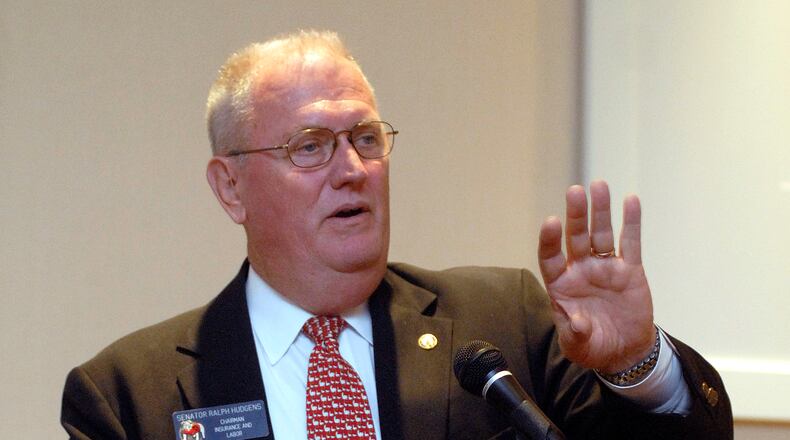The state’s review of Allstate Insurance’s plan to raise auto insurance rates 25 percent later this month won’t be completed in time to stop the rates from taking effect, Georgia Department of Insurance officials told the Atlanta Journal-Constitution.
State Insurance Commissioner Ralph Hudgens hired AIS Risk Consultants, an actuarial firm, to examine Allstate’s rate filings.
But under the file-and-use law legislators supported in 2008, the company can raise rates without the state’s formal approval. The new rates become effective May 22, and the commissioner said some drivers could see their rates skyrocket as much as 58 percent. The average increase will be 25 percent.
“At this time, it does not appear that the results of the examination will be determined before the effective date,” Hudgens said in a statement. “If the filing is proven to be excessive, then I will do everything allowed by law to reverse Allstate’s actions.”
Those “actions,” his staff said, could include directing Allstate to refund “excess” premiums paid by consumers.
Allstate spokesman Adam Polak said the company will cooperate with Hudgens’ office.
“Should the department’s review raise any questions with our filing, we will work cooperatively to reach agreement on these questions and take whatever steps are necessary to comply with that agreement,” he said in a statement.
Last month Hudgens issued a rare "consumer alert" after Allstate Insurance filed its plan to raise rates.
Allstate is a major player in the state’s auto insurance market. At the end of 2015, Allstate had 11 percent of market in Georgia, according to Hudgens’ office, making it the second-largest insurer in the state behind State Farm.
Hudgens directed his staff to initiate a “professional-level examination” of the Allstate filing to determine whether the rate increase can be defended. If it can’t be, Hudgens can try to get it lowered.
Before “file and use,” commissioners had to approve increases. Under the 2008 change that Hudgens supported as a state senator, the commissioner can review rate changes after they’ve been filed to make sure they aren’t either excessive or inadequate to keep the company in business, and to make sure they aren’t discriminatory.
The commissioner at the time, John Oxendine, warned that the change would lead to a spike in auto insurance rates.
“Back in those days, the rates were going down,” said Rep. Carl Rogers, R-Gainesville, an insurance agent and member of the House Insurance Committee. “Now everything is going up.
“I have been in the business 40 years. I have never seen rates like they are right now.”
Hudgens has been criticized in the past for allowing rates to spike. He told the AJC last year that he didn't even look at proposed rate hikes unless the proposed increases were above 10 percent.
The AJC reported last year that auto insurers were getting their largest rate increases in a decade, with some filing more than two rate hikes in a year.
The result: Georgia led the nation in 2014 with the highest overall increase in personal auto insurance rates. The state ranked second overall in 2013.
Hudgens has been heavily backed by the industry over the years. When he was Senate Insurance Committee chairman, he received three, $1,000 contributions from Allstate from 2006-2008. Since he initially began campaigning for insurance commissioner in 2009, he has received contributions from 38 Allstate executives and employees, collecting about $4,600, according to an AJC review of campaign finance records.
But staffers say Hudgens is now taking a harder look at companies seeking to raise auto insurance rates, and that the Allstate case is an example of that.
About the Author
Keep Reading
The Latest
Featured





